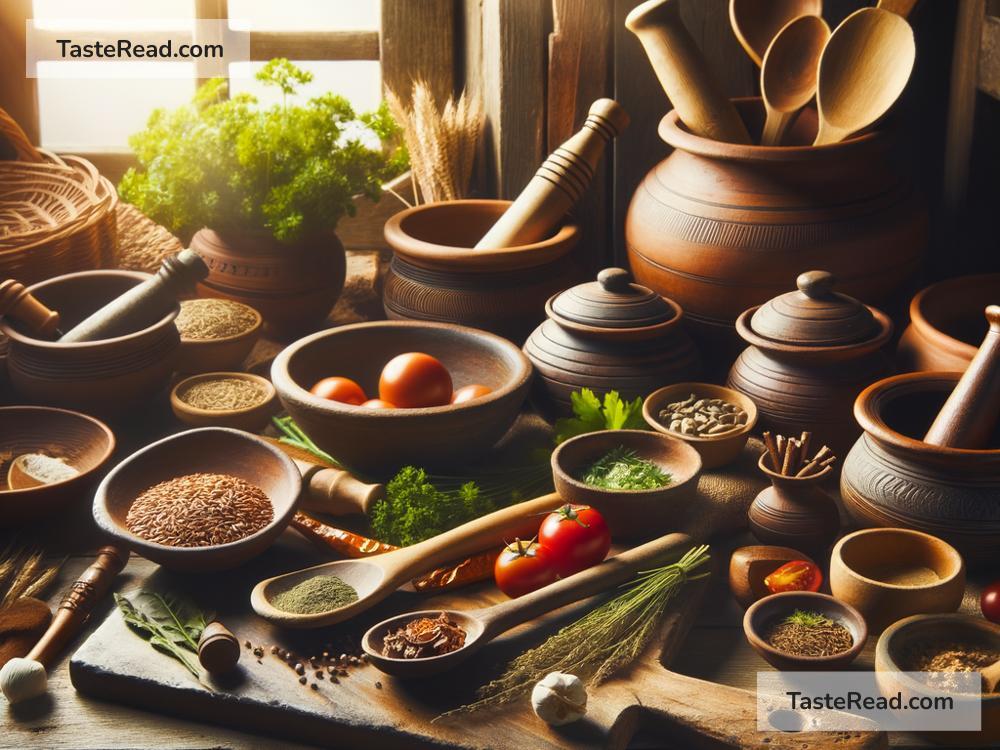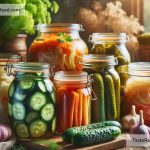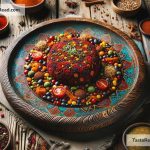Cooking is more than just a way to feed ourselves; it’s an art, a science, and for some, a path to discovering cultures and histories long gone. For me, it became a doorway to the past, allowing me to connect with ancient civilizations through the very act of preparing food. This is a tale of how I developed a passion for cooking, specifically using ancient techniques, that transformed not just the way I eat, but how I view the world.
It all began quite unexpectedly. I was rummaging through an old bookstore when I stumbled upon a dusty cookbook titled “Culinary Traditions of the Ancients.” Flipping through its pages, I was immediately captivated by the recipes and cooking methods used thousands of years ago by civilizations like the Egyptians, Romans, and Mayans. They didn’t have modern conveniences like stoves or microwaves, yet they created delicious, sophisticated dishes using what was available to them. This piqued my curiosity — how could I recreate these ancient dishes in my own kitchen?
Determined to explore this culinary world, I decided to start simple, with a dish that dates back to ancient Rome — Moretum, a type of herb and cheese spread. The recipe required a mortar and pestle, commonplace kitchen tools in ancient times but not something I’d ever used for cooking. As I crushed garlic, salt, and fresh herbs, mixing them with cheese in a rhythmic motion, I felt a connection to the past. It was as if, for a moment, I was a Roman, preparing a meal with the same simplicity and ingredients they would have used. The experience was deeply satisfying, and the result was a delicious spread that tasted like nothing I’d ever had before.
Emboldened by this success, I delved deeper into ancient cooking techniques. I learned about the importance of fire in historical cooking methods. Cooking over an open flame was an art — it required understanding the types of wood that burned best and how different temperatures and cooking times affected the food. I invested in a fire pit and began experimenting with grilling, smoking, and even baking bread in ashes, just as our ancestors might have done. The smoky flavors and unique textures I achieved were revelations, showcasing the complexity of what might seem like primitive cooking methods.
But what fascinated me most was not just the techniques or the flavors, but the stories behind the dishes. Each recipe was a window into the daily life, culture, and environment of ancient peoples. I learned how the Mayans revered corn and developed nixtamalization, a process that involves soaking and cooking corn in an alkaline solution. This not only made it easier to grind but also unlocked essential nutrients, showcasing a deep understanding of food chemistry long before it was formally studied.
As my journey continued, I began incorporating these ancient techniques into my daily cooking, reviving old traditions in my own modern kitchen. I made bread using sourdough starters, akin to those that would have been used centuries ago. I fermented vegetables, creating kimchi and sauerkraut in a nod to ancient preservation methods. With each dish, I felt a deeper connection to humanity’s culinary heritage, realizing that these techniques have shaped how we cook and eat today.
My passion for cooking with ancient techniques also led me to be more sustainable in my practices. Many of these methods require minimal equipment and make use of the whole ingredient, reducing waste. They also emphasize local and seasonal ingredients, echoing the ancient reliance on what was readily available. This not only makes for better, more flavorful food but also fosters a respect for the environment and our place within it.
In sharing my experiences, I hope to inspire others to explore the rich tapestry of ancient culinary practices. Cooking with these techniques is not just about recreating historical dishes; it’s about connecting with our ancestors, understanding the ingenuity of past civilizations, and perhaps most importantly, preserving these traditions for future generations. It’s a journey that has deeply enriched my life, adding layers of flavor not just to my meals, but to my understanding of human history and culture. Through this ancient culinary adventure, I’ve discovered that food is a universal language, capable of transcending time and bringing us closer to those who came before us.


